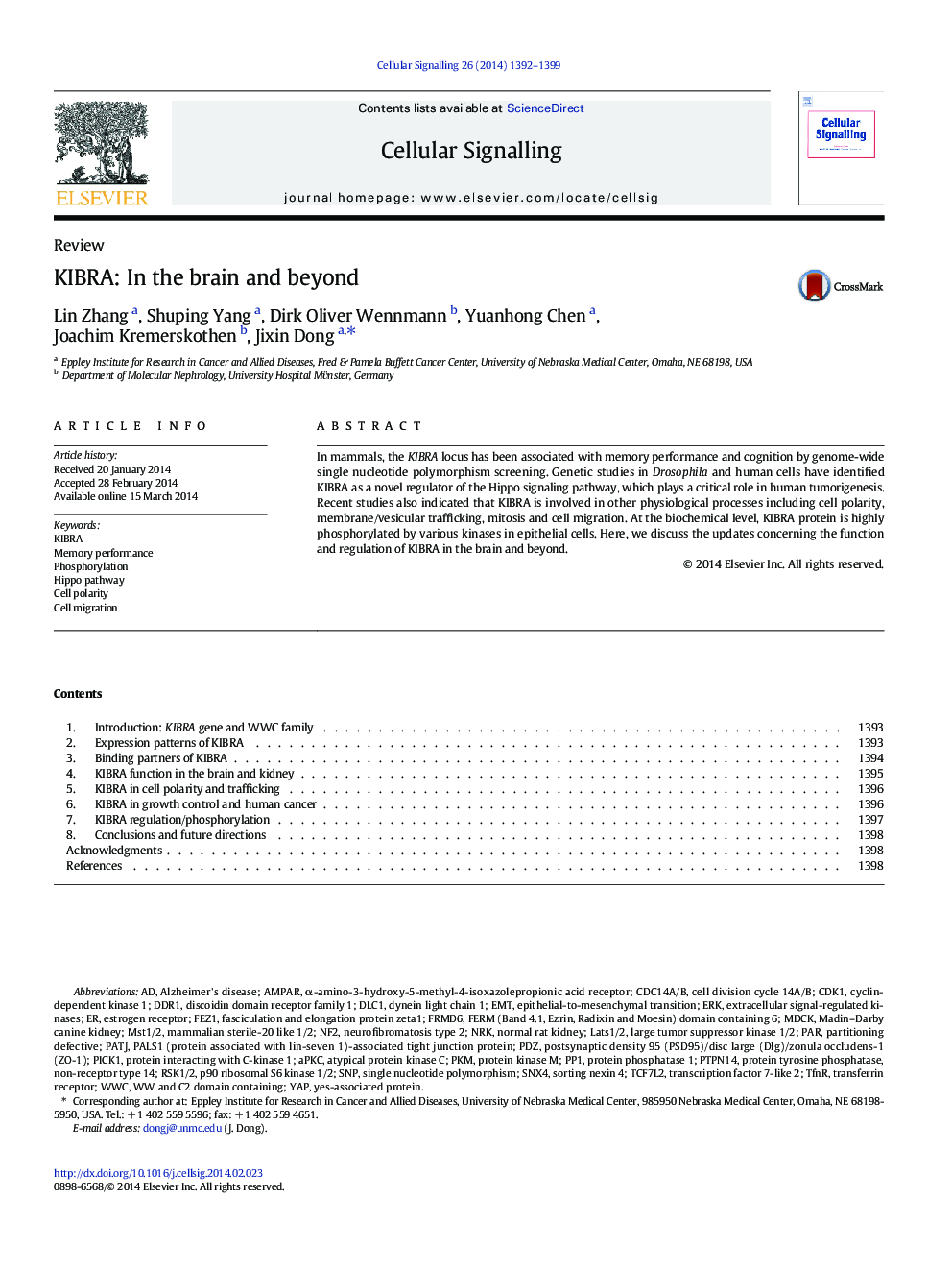| Article ID | Journal | Published Year | Pages | File Type |
|---|---|---|---|---|
| 10816042 | Cellular Signalling | 2014 | 8 Pages |
Abstract
In mammals, the KIBRA locus has been associated with memory performance and cognition by genome-wide single nucleotide polymorphism screening. Genetic studies in Drosophila and human cells have identified KIBRA as a novel regulator of the Hippo signaling pathway, which plays a critical role in human tumorigenesis. Recent studies also indicated that KIBRA is involved in other physiological processes including cell polarity, membrane/vesicular trafficking, mitosis and cell migration. At the biochemical level, KIBRA protein is highly phosphorylated by various kinases in epithelial cells. Here, we discuss the updates concerning the function and regulation of KIBRA in the brain and beyond.
Keywords
TCF7L2WWCPATJDynein light chain 1Lats1/2FEZ1PTPN14DLC1NRKaPKCMst1/2PP1CDK1MDCKNF2PICK1PDZDDR1PKMERKAMPARα-amino-3-hydroxy-5-methyl-4-isoxazolepropionic acid receptorYAPAlzheimer's diseaseParEMTMemory performancetranscription factor 7-like 2PhosphorylationCell polarityHippo pathwayCell migrationneurofibromatosis type 2partitioning defectiveprotein phosphatase 1yes-associated proteinatypical protein kinase CProtein kinase MSingle nucleotide polymorphismSNPnormal rat kidneyMadin–Darby Canine KidneyKIBRAextracellular signal-regulated kinasesCyclin-dependent kinase 1epithelial-to-mesenchymal transitionEstrogen receptortransferrin receptor
Related Topics
Life Sciences
Biochemistry, Genetics and Molecular Biology
Biochemistry
Authors
Lin Zhang, Shuping Yang, Dirk Oliver Wennmann, Yuanhong Chen, Joachim Kremerskothen, Jixin Dong,
